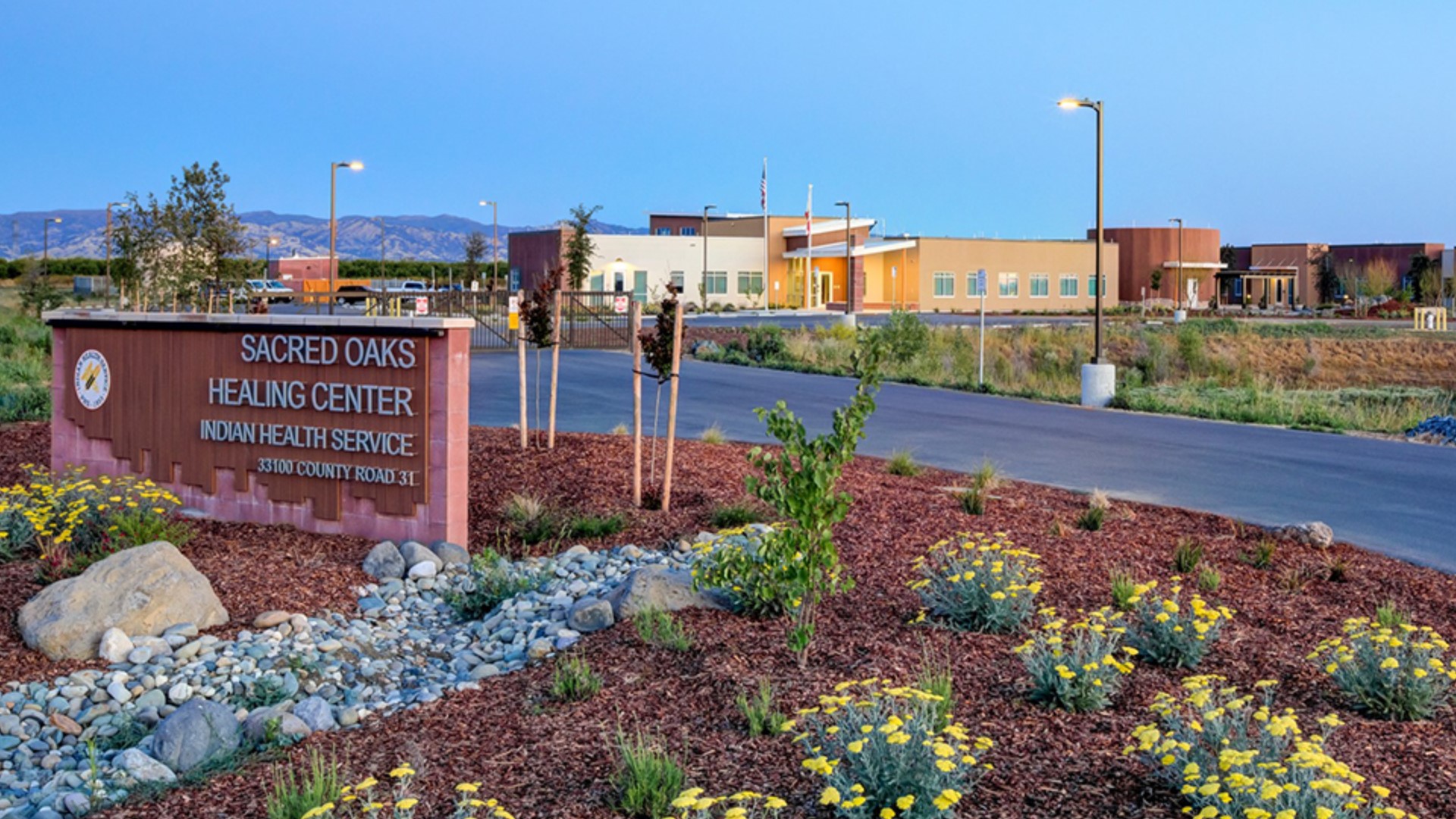DAVIS, Calif. — The Indian Health Service joined more than 100 Native American tribes in California Friday for the grand opening of a youth health and wellness center in Davis.
Sacred Oaks Healing Center is a new youth regional treatment center providing culturally appropriate substance use disorder and behavioral health treatment to American Indian and Alaska Native ages 12 to 17.
Kletsel Dehe Wintun Nation Tribal Chairman Charlie Wright said the treatment center can address historical trauma Indigenous youth face.
"For tribal people, we have this balance between respecting others when we're in their territory, but also remaining who we are as well," he said. "(The center) reflects the uniqueness of our area, our climate and our region."
Kashia Band of Pomo Indians Tribal Chairman Reno Keoni Franklin said tribal children have historically been sent out-of-state for substance abuse and mental health regional treatment centers.
Sacred Oaks Healing Center is helping bring that practice to an end, Franklin said.
"This is really about restoration of families—so we're real happy that (the center) is built," he said.
Until recently, many tribes in the region have had to travel long distances to Southern California, Oregon and Nevada.
"More than a hundred years of historic trauma on native families, and we have not had the ability to take our kids to regional treatment centers," Franklin said.
Tribal lands can be physically isolated as well.
"Sometimes there are fewer opportunities, sometimes there are more influences from people who've been through historic trauma and suffering from it and haven't found healthy ways to deal with that," Franklin said.
Franklin also said the center has a uniqueness based on their culture, traditional knowledge and ecological knowledge. He said the culture is also reflected in the center's design and artifacts.
Administrators said there are two youths in care right now, and five have finished the program with more admissions arriving soon.
The center offers a co-ed residential environment for 32 youths with a four-month average length of treatment. All potential residents must be diagnosed with a primary substance disorder by a licensed provider. Treatment services include family therapy, fitness program, cultural activities and counseling.



















